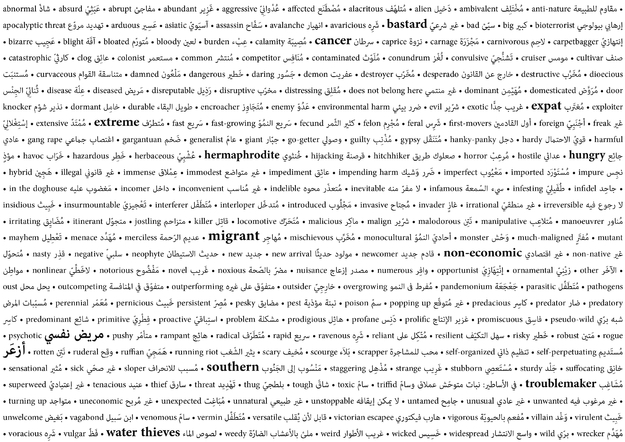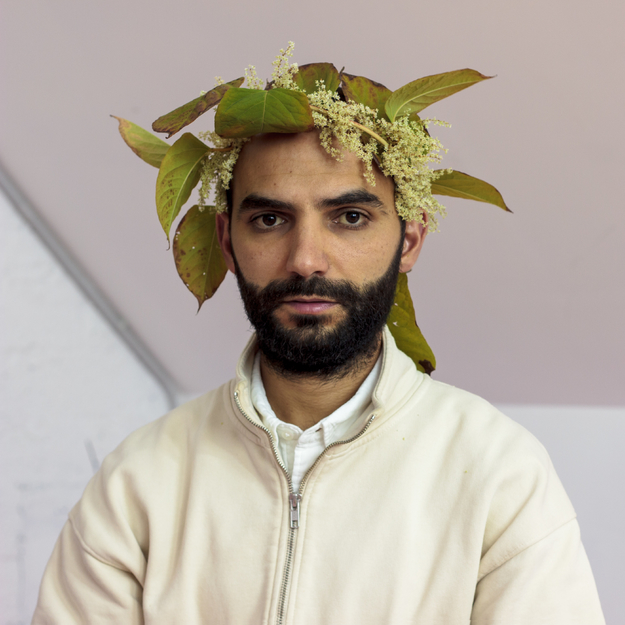Invader, enemy, alien, wicked, predator, dangerous, catastrophic, parasitic, pest, cancer, evil, killer, assassin, bully, savage, ugly, dirty. Reading these words, you might imagine a monstrous plant, a life-threatening problem that should be dealt with sooner rather than later.
A selection of these words, which make up the work "The Dog Chased Its Tail to Bite It Off," will be on show during Mediamatic's Japanese Knotweed Festival in three languages: English, Arabic and Dutch. By confronting visitors with the hostile tone of voice used in relation to the plant, Alaa hopes to prompt questions about this mindset and hopefully contribute to new ways of approaching the plant.
"My work comes here to ask questions, not to provide answers. I want people to think and be respectful, not just wait for authorities or others to do the work for them. They should take action and think for themselves."
The artist is saddened by the amount of money and technology deployed in the process of killing the plant and advocates for switching this approach around. To spend time, money, and, most importantly, imagination on finding new ways of living together with Japanese Knotweed.
Alaa has been working with the plant for five years. He shares how he views the work they have done together as a collaboration, rather than conducting research on Japanese Knotweed. A closer investigation of the plant has taught the artist a lot about time. The plant has persevered over the course of multiple centuries.
"You cannot deal with Japanese Knotweed today ignoring its past, present, and future. You also cannot discuss Japanese Knotweed without any speculation or imagination of the future. It has also enormously contributed to me personally: slowing down, contemplating, digesting, in-depth looking, trying to see things from different angles, and shifting my own perspective. Not immediately accepting things as they are given or presented."
Their close collaboration also led Alaa to the insight that the language connected to Japanese Knotweed reveals more about human conditions than actual characteristics of the plant itself. According to Alaa, the way a human treats their plants reveals a lot about a person. In Western Europe, exists a prevailing notion of Japanese Knotweed as invasive exotic. The meaning of the word "exotic" is “something that is not from here”. The xenophobic vocabulary that is employed for the knotweed parallels with the language that is used to describe human migrants. Consequently, as someone who is not Western European or European at all, Alaa was shocked to read that exterminating invasive plants has turned into a national achievement in political parties’ agendas.
During his ongoing research, Alaa has noticed a change in the discourse surrounding Japanese Knotweed. The number of projects that discuss the plant in different manners has increased, especially in the fields of art and design. Alaa highlights the value of these projects and how they have the capacity to possibly find solutions when other fields, especially the political, are failing to do so.
Alaa’s work for the Japanese Knotweed festival will be on show in the restaurant of Mediamatic from the 14th of April until the 18th of June.


